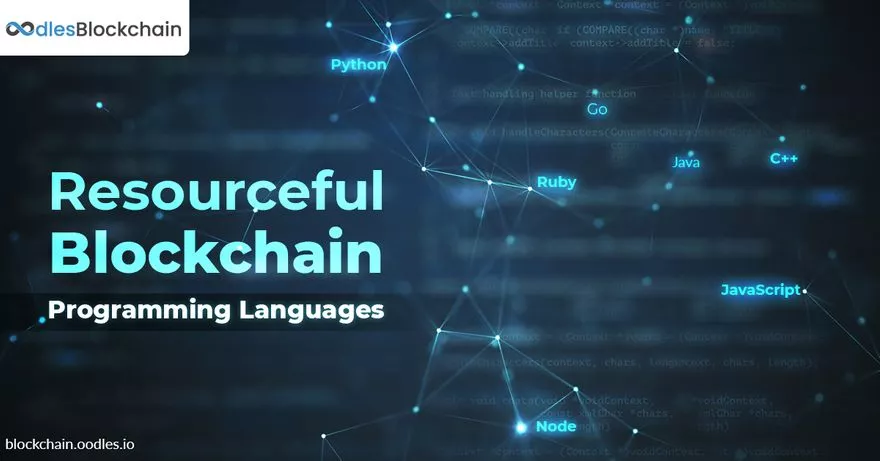-
Businesses have eyes on the blockchain technology after its significant advancements and increased adoption in diverse industries. However, there is a scarcity of development experts who have sufficient knowledge about blockchain programming languages to develop blockchain projects. Blockchain programming languages play a crucial role in the development and success of blockchain projects. It has resulted in the downtrend of blockchain app development. Ultimately, these scenarios intensify the need for proficient blockchain developers with knowledge in different blockchain programming languages and DLTs (distributed ledger technology). So, let's take a look at a few programming languages with their benefits and advantages for blockchain application development.
Programming Languages for Blockchain Solutions
Solidity
Solidity is one of the most used programming languages for blockchain development, specifically for writing smart contracts. Often, considered as a JavaScript framework, what contributes to its popularity is its hassle-free implementation. It means any JavaScript developer can code even the most complex smart contract, only by understanding a few fundamental blockchain concepts and related instructions. Read more: Why Choose Solidity for Creating Ethereum Smart Contracts
JavaScript
JavaScript is the most preferred language used for building frontend web interfaces. However, now blockchain developers use frameworks like Node.JS, Angular or React to develop blockchain applications. Some of the advantages of JavaScript are its low entry point, scalability and several modules and frameworks that make it more suitable for blockchain app development. Those frameworks and modules, at the same time, become a significant drawback. It means that developers need to search for additional tools to develop blockchain solution, JavaScript itself is not sufficient.
Python
Created back in 1991, Python's popularity has increased significantly over the last decade, especially among AI projects. Also, developers use it for developing blockchains and coding smart contracts for platforms like Hyperledger or NEO. It has easy syntax and sophisticated features that make it a notable programming language for blockchain development. While it differs from common C-derived languages using parentheses, semicolons, and braces, it is comparatively easy to learn. The biggest advantage of Python for programming is that developers can use it in both compiled form and runtime compilation of sources. It makes it perfect for both base and scripting approaches. Developers have used non-compiled Python to code blockchain applications for logistics and agriculture and changed its nature during the operation.
GO
Go, or Golang is a new programming language that has proved its significance in the blockchain application development landscape. It combines the best of both Python and JavaScript, including user-friendliness and syntax, and the efficiency of compiled languages like C and C++. Also, Golang is fast, flexible, and scalable.
Simplicity
It's a blockchain programming language that enables blockchain developers to code more human-centric smart contracts. Simplicity was created to enhance basic cryptocurrency languages like Ethereum Virtual Machine (EVM) and Bitcoin Script. Bitcoin's smart contract language, Bitcoin Script is low-level and requires a thorough understanding of Bitcoin. It utilizes static analysis- a technique that allows a universal algorithm to assess the cost of executing any Simplicity Program- to avoid the halt of programs due to the exhaustion of gas during the analysis. That's how simplicity makes it way easier and faster to write smart contracts.
С++
C++ is perhaps one of the most prevalent general-purpose programming languages used for blockchain. Developers use it as the underlying language for building blockchains themselves and developing out-of-blockchain parts for software, like blockchain interfaces or oracles for smart contracts. Essentially, they use C++ as the core of top cryptocurrencies and blockchains, like Ripple, Litecoin, Monero, EOS, Stellar, etc. Being an object-oriented programming language, it significantly reduces the complexity in developing any software using the latest technologies. It requires to be compiled in most cases, which is beneficial in the development of the blockchain. However, using it as the on-blockchain scripting language is not recommended. The dApps created using C++ tend to be heavier. They need more time to run and provide lots of unnecessary, unusable code while creating a smart contract.

Our Offices
INDIA
Emaar Digital Greens, Sector 61,
Gurugram, Haryana
122011.
Welldone Tech Park,
Sector 48, Sohna road,
Gurugram, Haryana
122018.
















